Recent Research on the Major Prophets
Published: Oct 2008
£60.00
Given the many new methods and approaches for interpreting biblical literature that have appeared in the past several decades, it is hardly surprising that our understanding of the prophets Isaiah, Jeremiah and Ezekiel has expanded and diversified at a rapid pace. Historical-critical understandings and perspectives have been challenged and often dramatically altered. New approaches, such as social-scientific criticism, rhetorical criticism, feminist criticism, reader response criticism, literary analysis, anthropological analysis, structuralist criticism, ideological criticism, and deconstructionist criticism have both challenged old approaches and shed new light on the texts being studied.
In this volume, Alan Hauser presents eleven articles, each with an extensive bibliography, that survey the variety and depth of recent and contemporary scholarship on these three prophets. Five of them are new to this volume. All are written by experts in each area of scholarship, including Marvin Sweeney, Paul Kim, Roy Melugin, Robert P. Carroll, Peter Diamond, Katheryn Pfisterer Darr and Risa Levitt Kohn. Hauser introduces the volume with a comprehensive summary and overview of the articles.
Recent Research on the Major Prophets
£60.00
Given the many new methods and approaches for interpreting biblical literature that have appeared in the past several decades, it is hardly surprising that our understanding of the prophets Isaiah, Jeremiah and Ezekiel has expanded and diversified at a rapid pace. Historical-critical understandings and perspectives have been challenged and often dramatically altered. New approaches, such as social-scientific criticism, rhetorical criticism, feminist criticism, reader response criticism, literary analysis, anthropological analysis, structuralist criticism, ideological criticism, and deconstructionist criticism have both challenged old approaches and shed new light on the texts being studied.
In this volume, Alan Hauser presents eleven articles, each with an extensive bibliography, that survey the variety and depth of recent and contemporary scholarship on these three prophets. Five of them are new to this volume. All are written by experts in each area of scholarship, including Marvin Sweeney, Paul Kim, Roy Melugin, Robert P. Carroll, Peter Diamond, Katheryn Pfisterer Darr and Risa Levitt Kohn. Hauser introduces the volume with a comprehensive summary and overview of the articles.
Identity and Loyalty in the David Story: A Postcolonial Reading
Published: Oct 2008
£40.00
In this volume, Uriah Kim examines King David in a new light — the politics of identity and loyalty. He reads the David story from the North American context, in which millions of Americans are compelled to make a choice between their multiple heritages, which are inseparably encoded in their genetic or cultural makeup. In making this choice, their loyalty to their nation and to their particular racial/ethnic community is questioned if they do not define themselves with a single identity.
Kim sees a David who was radically inclusive: an egalitarian who was open to making connections with people across various boundaries and differences and who was thus able to build a multi-ethnic kingdom. Rather than basing his rule on his own tribal identity, David built his kingdom by attracting the loyalty of diverse constituents and by putting together an eclectic coalition of ethnic, tribal, and religious groups based on loyalty. It was only later, as part of the identity formation of ancient Israel, that people who were equally part of David's hybridized kingdom were separated into 'real' Israelites as opposed to 'the other' in the narrative.
In this reading, Kim leads the reader to a new understanding of David: he did not just use Realpolitik and the sword, nor did he depend totally on God's providence to establish his kingdom; rather, he practised the transgressive power of hesed ('loyalty and kindness') to forge his kingdom.
Identity and Loyalty in the David Story: A Postcolonial Reading
£40.00
In this volume, Uriah Kim examines King David in a new light — the politics of identity and loyalty. He reads the David story from the North American context, in which millions of Americans are compelled to make a choice between their multiple heritages, which are inseparably encoded in their genetic or cultural makeup. In making this choice, their loyalty to their nation and to their particular racial/ethnic community is questioned if they do not define themselves with a single identity.
Kim sees a David who was radically inclusive: an egalitarian who was open to making connections with people across various boundaries and differences and who was thus able to build a multi-ethnic kingdom. Rather than basing his rule on his own tribal identity, David built his kingdom by attracting the loyalty of diverse constituents and by putting together an eclectic coalition of ethnic, tribal, and religious groups based on loyalty. It was only later, as part of the identity formation of ancient Israel, that people who were equally part of David's hybridized kingdom were separated into 'real' Israelites as opposed to 'the other' in the narrative.
In this reading, Kim leads the reader to a new understanding of David: he did not just use Realpolitik and the sword, nor did he depend totally on God's providence to establish his kingdom; rather, he practised the transgressive power of hesed ('loyalty and kindness') to forge his kingdom.
Lions and Ovens and Visions: A Satirical Reading of Daniel 1-6
Published: Sep 2008
£55.00
Are the stories of Daniel at the court of the Persian king simply cheerful tales of a clever and successful courtier, as many assume? Valeta doubts it, insisting that the playful and fantastic storyline must have a more serious meaning.
The key to these narratives lies in their genre. These tales of lions and ovens and the like are examples of Menippean satire, argues Valeta, an ancient genre foregrounded in modern literary study by Bakhtin, who saw in the characteristic interplay of voices in the Menippean satire a prime instance of his 'dialogism'. Especially typical of the Menippean satire is an indecorous mixing of styles and elements, which may be the explanation why the Daniel narratives are both comic and serious, Hebrew and Aramaic, episodic and unified.
Viewed as satire, the Daniel narratives emerge in their true colours as resistance literature to the regime of Antiochus IV —and so form a perfect accompaniment to the visions of Daniel 7 —12.
Lions and Ovens and Visions: A Satirical Reading of Daniel 1-6
£55.00
Are the stories of Daniel at the court of the Persian king simply cheerful tales of a clever and successful courtier, as many assume? Valeta doubts it, insisting that the playful and fantastic storyline must have a more serious meaning.
The key to these narratives lies in their genre. These tales of lions and ovens and the like are examples of Menippean satire, argues Valeta, an ancient genre foregrounded in modern literary study by Bakhtin, who saw in the characteristic interplay of voices in the Menippean satire a prime instance of his 'dialogism'. Especially typical of the Menippean satire is an indecorous mixing of styles and elements, which may be the explanation why the Daniel narratives are both comic and serious, Hebrew and Aramaic, episodic and unified.
Viewed as satire, the Daniel narratives emerge in their true colours as resistance literature to the regime of Antiochus IV —and so form a perfect accompaniment to the visions of Daniel 7 —12.
The Book of Esther: A Classified Bibliography
Published: Sep 2008
£60.00
This comprehensive bibliography to scholarly works on the biblical book of Esther contains over 1900 references. It includes titles of books, collected works, Festschriften, theses, journal articles, essays in collections, encyclopaedia and dictionary articles, and online material. It is a classified bibliography, arranged in three main categories -- commentaries, biblical chapters and verses, and subject headings in alphabetical order.
The scope of the bibliography is international, and its focus is on research from the last hundred years. Scholars, students, clergy, and librarians -- among them literary scholars, psychologists, sociologists, historians, linguists, art historians, political scientists, feminists, and Christian and Jewish scholars -- will find this unique volume an indispensable resource and stimulus to further research.
A special feature of the bibliography is its extensive coverage of Jewish sources. This volume received a 'Honorable Mention' in the 2008 Judaica Reference and Bibliography Awards.
The Book of Esther: A Classified Bibliography
£60.00
This comprehensive bibliography to scholarly works on the biblical book of Esther contains over 1900 references. It includes titles of books, collected works, Festschriften, theses, journal articles, essays in collections, encyclopaedia and dictionary articles, and online material. It is a classified bibliography, arranged in three main categories -- commentaries, biblical chapters and verses, and subject headings in alphabetical order.
The scope of the bibliography is international, and its focus is on research from the last hundred years. Scholars, students, clergy, and librarians -- among them literary scholars, psychologists, sociologists, historians, linguists, art historians, political scientists, feminists, and Christian and Jewish scholars -- will find this unique volume an indispensable resource and stimulus to further research.
A special feature of the bibliography is its extensive coverage of Jewish sources. This volume received a 'Honorable Mention' in the 2008 Judaica Reference and Bibliography Awards.
Recent Releases: The Bible in Contemporary Cinema
Published: Aug 2008
£35.00
The relationship between theology and film has always been a complicated one. When film was invented at the end of the nineteenth century, it quickly gained its place in popular culture, far from the orthodoxies of the scholarly world and of the Church. For the better part of the twentieth century popular cinema was considered off limits for serious studies of Bible and culture. Recently, however, there has been a growing understanding of how the Bible is being used in popular culture —not as a historical document or as an authoritative canon, but as part of the cultural intertext.
Cinema is a vivid example of the role and impact of the Bible in contemporary society. In this well-theorized collection of essays the issue is treated from several angles. Using the methodology of theology, the question of the alleged escapism of popular cinema is explored. Using the methodology of media studies, the impact of the media on religious communication is analysed. And, using the methodology of religious studies, the influence of the cinema in the creation of new religions, religious behaviour and religious institutions is investigated.
In addition, the book offers fruitful analyses of the cinematic use of biblical themes such as Eden, salvation, Mary Magdalene and Jesus —as well as of the cinematic application of ethical themes such as truth-telling, personal growth, suffering, the accomplishment of good and the creating of meaning for human beings.
Recent Releases: The Bible in Contemporary Cinema
£35.00
The relationship between theology and film has always been a complicated one. When film was invented at the end of the nineteenth century, it quickly gained its place in popular culture, far from the orthodoxies of the scholarly world and of the Church. For the better part of the twentieth century popular cinema was considered off limits for serious studies of Bible and culture. Recently, however, there has been a growing understanding of how the Bible is being used in popular culture —not as a historical document or as an authoritative canon, but as part of the cultural intertext.
Cinema is a vivid example of the role and impact of the Bible in contemporary society. In this well-theorized collection of essays the issue is treated from several angles. Using the methodology of theology, the question of the alleged escapism of popular cinema is explored. Using the methodology of media studies, the impact of the media on religious communication is analysed. And, using the methodology of religious studies, the influence of the cinema in the creation of new religions, religious behaviour and religious institutions is investigated.
In addition, the book offers fruitful analyses of the cinematic use of biblical themes such as Eden, salvation, Mary Magdalene and Jesus —as well as of the cinematic application of ethical themes such as truth-telling, personal growth, suffering, the accomplishment of good and the creating of meaning for human beings.
Recent Research on Paul and Slavery
Published: Aug 2008
£45.00
New Testament scholarship and Paul have had a complicated relationship over the question of slavery. For many decades there has been a struggle to reconcile the abolitionist cause with a biblical text that seemingly supports the institution of slavery. Then the more recent discovery of inscriptions and documents referring to slaves in antiquity has added new dimensions to the debate. Furthermore, new interpretative approaches to the New Testament, including social-scientific criticism, rhetorical criticism and postcolonial criticism, have challenged earlier interpretations of Paul's statements about slavery. The issue has even more recently taken on a new shape as descendants of former North American slaves have engaged with the way Paul has been interpreted and used to justify the enslavement of their ancestors.
In this volume, John Byron provides a survey of 200 years of scholarly interpretation of Paul and slavery with a focus on the last 35 years. After a general overview of the history of research, Byron focusses in turn on four specific areas: African-American responses to Paul, Paul's slavery metaphors, the elliptical phrase in 1 Corinthians 7.21, and the letter to Philemon. An epilogue highlights four areas in which scholarship is continuing to change its understanding of ancient slavery and, in consequence, its interpretation of Paul. New Testament students and scholars will find the volume an valuable specialist resource that collects and analyses the most important developments on Paul and slavery.
Recent Research on Paul and Slavery
£45.00
New Testament scholarship and Paul have had a complicated relationship over the question of slavery. For many decades there has been a struggle to reconcile the abolitionist cause with a biblical text that seemingly supports the institution of slavery. Then the more recent discovery of inscriptions and documents referring to slaves in antiquity has added new dimensions to the debate. Furthermore, new interpretative approaches to the New Testament, including social-scientific criticism, rhetorical criticism and postcolonial criticism, have challenged earlier interpretations of Paul's statements about slavery. The issue has even more recently taken on a new shape as descendants of former North American slaves have engaged with the way Paul has been interpreted and used to justify the enslavement of their ancestors.
In this volume, John Byron provides a survey of 200 years of scholarly interpretation of Paul and slavery with a focus on the last 35 years. After a general overview of the history of research, Byron focusses in turn on four specific areas: African-American responses to Paul, Paul's slavery metaphors, the elliptical phrase in 1 Corinthians 7.21, and the letter to Philemon. An epilogue highlights four areas in which scholarship is continuing to change its understanding of ancient slavery and, in consequence, its interpretation of Paul. New Testament students and scholars will find the volume an valuable specialist resource that collects and analyses the most important developments on Paul and slavery.
Longing for Egypt and Other Unexpected Biblical Tales
Published: Aug 2008
£50.00
Readers of all persuasions have a tendency to privilege simple interpretations over complex, unsettling, readings. The more fraught the issue, the more often we find in the history of interpretation that a simple reading has been generated that masks its complexity.
'Longing for Egypt and Other Unexpected Biblical Tales' explores seven cases of textual complexity masked by simple readings. One chapter uncovers a counter-intuitive longing for Egypt alongside the Exodus account of liberation from persecution. Another shows how what appears to be a critical attitude in the Bible towards other gods may reflect inner-Israelite tensions rather than some principled antipathy toward others.
Yet another confronts the praise of God as a perfect king with the use of the language of divine kingship as a vehicle for constructive criticism. All seven chapters share a focus on the formation of identity. Arguably the Bible's most sensitive subject, for its authors and for present-day readers, this topic has generated a host of simple readings that conceal immense complexity.
Longing for Egypt and Other Unexpected Biblical Tales
£50.00
Readers of all persuasions have a tendency to privilege simple interpretations over complex, unsettling, readings. The more fraught the issue, the more often we find in the history of interpretation that a simple reading has been generated that masks its complexity.
'Longing for Egypt and Other Unexpected Biblical Tales' explores seven cases of textual complexity masked by simple readings. One chapter uncovers a counter-intuitive longing for Egypt alongside the Exodus account of liberation from persecution. Another shows how what appears to be a critical attitude in the Bible towards other gods may reflect inner-Israelite tensions rather than some principled antipathy toward others.
Yet another confronts the praise of God as a perfect king with the use of the language of divine kingship as a vehicle for constructive criticism. All seven chapters share a focus on the formation of identity. Arguably the Bible's most sensitive subject, for its authors and for present-day readers, this topic has generated a host of simple readings that conceal immense complexity.
With Eyes of Flesh: The Bible, Gender and Human Rights
Published: Aug 2008
Price range: £19.50 through £50.00
Carole Fontaine, well known among biblical scholars for her feminist studies in the biblical wisdom traditions and the ancient Near East, is also a human rights and interfaith activist working on issues of violence against Muslim women in the Middle East and Southern Asia and a board member of many agencies such as the International Network for the Rights of Female Victims of Violence in Pakistan, and the Women's Forum against Fundamentalism in Iran.
In this collection of her essays, mostly previously unpublished, she brings together these two concerns, distilling from the scriptures of Judaism, Christianity and Islam valuable insights into current questions of human rights. Unlike many writers, Fontaine recognizes the critical role of gender in the fundamental concept of the 'Other', so determinative for our view of humanity.
In our days, Fontaine argues, human rights issues have taken on a new dimension in political discourse about war, peace and terror, where often an appeal is made to religious and scriptural justifications for the violation or preservation of rights. Fontaine urges attention to the priority of the sufferer in adjudicating meaning, and turns to the 'little texts' of daily ethics rather than grand theological abstractions in order to place 'scriptures' in meaningful conversation with the concrete realities of our world.
This is the second volume of the Amsterdam Studies in the Bible and Religion (ed. Athalya Brenner), a sub-series of the Bible in the Moden World.
With Eyes of Flesh: The Bible, Gender and Human Rights
Price range: £19.50 through £50.00
Carole Fontaine, well known among biblical scholars for her feminist studies in the biblical wisdom traditions and the ancient Near East, is also a human rights and interfaith activist working on issues of violence against Muslim women in the Middle East and Southern Asia and a board member of many agencies such as the International Network for the Rights of Female Victims of Violence in Pakistan, and the Women's Forum against Fundamentalism in Iran.
In this collection of her essays, mostly previously unpublished, she brings together these two concerns, distilling from the scriptures of Judaism, Christianity and Islam valuable insights into current questions of human rights. Unlike many writers, Fontaine recognizes the critical role of gender in the fundamental concept of the 'Other', so determinative for our view of humanity.
In our days, Fontaine argues, human rights issues have taken on a new dimension in political discourse about war, peace and terror, where often an appeal is made to religious and scriptural justifications for the violation or preservation of rights. Fontaine urges attention to the priority of the sufferer in adjudicating meaning, and turns to the 'little texts' of daily ethics rather than grand theological abstractions in order to place 'scriptures' in meaningful conversation with the concrete realities of our world.
This is the second volume of the Amsterdam Studies in the Bible and Religion (ed. Athalya Brenner), a sub-series of the Bible in the Moden World.
The Concept of Form in the Twentieth Century
Published: Jun 2008
£25.00
This study provides a history of the concept of form in the twentieth century CE, focusing on the rise and character of relational theory. To some extent drawing on older traditions, relational theory accepts some aspects of modern particularism but moves beyond it by holding that relations simultaneously separate and connect. Particularity and generality are seen as aspects of relationality, and forms are viewed as complexes of relations. Prominent features of a relational view include: an avoidance of rigid structures through an orientation toward probability; multiperspectivity; possibility, not just particular actuality; continuity between the human and the nonhuman; and a valuational rather than a neutral view of reality.
Socially, relational theory has supported a combination of freedoms. It joins internal freedom, which values both body and mind, with both negative and positive external freedom, including "freedom from" external controls and "freedom for" the fulfillment of possibilities in cooperation with others. Politically, this ideal favors economic solidarity, respectful recognition of different racial or ethnic groups, women's liberation, increased sexual freedom, and ecological consciousness.
Relational theory was not the only notable view of form in the twentieth century, however. More-or-less individualistic particularism was radicalized in nihilist and skeptical philosophies, and powerful versions of group particularism arose in fascism, Stalinism, and continuing imperialism. Caucasian male thinkers varied considerably in the degree to which they supported relational conceptions of form, but, not surprisingly in view of the connection between a relational view of form and interactive freedom, most women and non-Caucasian males advocated relational views. Some of the tension described can be viewed positively from the relational side, however, for according to information theory uncertainty provides an opportunity for communication.
The Concept of Form in the Twentieth Century
£25.00
This study provides a history of the concept of form in the twentieth century CE, focusing on the rise and character of relational theory. To some extent drawing on older traditions, relational theory accepts some aspects of modern particularism but moves beyond it by holding that relations simultaneously separate and connect. Particularity and generality are seen as aspects of relationality, and forms are viewed as complexes of relations. Prominent features of a relational view include: an avoidance of rigid structures through an orientation toward probability; multiperspectivity; possibility, not just particular actuality; continuity between the human and the nonhuman; and a valuational rather than a neutral view of reality.
Socially, relational theory has supported a combination of freedoms. It joins internal freedom, which values both body and mind, with both negative and positive external freedom, including "freedom from" external controls and "freedom for" the fulfillment of possibilities in cooperation with others. Politically, this ideal favors economic solidarity, respectful recognition of different racial or ethnic groups, women's liberation, increased sexual freedom, and ecological consciousness.
Relational theory was not the only notable view of form in the twentieth century, however. More-or-less individualistic particularism was radicalized in nihilist and skeptical philosophies, and powerful versions of group particularism arose in fascism, Stalinism, and continuing imperialism. Caucasian male thinkers varied considerably in the degree to which they supported relational conceptions of form, but, not surprisingly in view of the connection between a relational view of form and interactive freedom, most women and non-Caucasian males advocated relational views. Some of the tension described can be viewed positively from the relational side, however, for according to information theory uncertainty provides an opportunity for communication.
Marxist Feminist Criticism of the Bible
Published: Jun 2008
£40.00
This volume seeks to spur a lively discussion on Marxist feminist analysis of biblical texts. Marxism and feminism have many mutual concerns, and the combination of the two has become common in literary criticism, cultural studies, sociology and philosophy. So it is high time for biblical studies to become interested.
This collection is the first of its kind in biblical studies, bringing together a mixture of newer and more mature voices. It falls into three sections: general concerns (Milena Kirova, Tamara Prosic and David Jobling); Hebrew Bible (Gale Yee and Avaren Ipsen); New Testament (Alan Cadwallader, Jorunn Økland, Roland Boer and Jennifer Bird).
Thought-provoking and daring, the collection includes: the history of Marxist feminist analysis, the work of Bertolt Brecht, the voices of prostitute collectives, and the possibilities for biblical criticism of the work of Rosemary Hennessy, Simone de Beauvoir, Juliet Mitchell, Wilhelm Reich and Julia Kristeva. All of which are brought to bear on biblical texts such as Proverbs, 1 Kings, Mark, Paul's Letters, and 1 Peter.
Marxist Feminist Criticism of the Bible
£40.00
This volume seeks to spur a lively discussion on Marxist feminist analysis of biblical texts. Marxism and feminism have many mutual concerns, and the combination of the two has become common in literary criticism, cultural studies, sociology and philosophy. So it is high time for biblical studies to become interested.
This collection is the first of its kind in biblical studies, bringing together a mixture of newer and more mature voices. It falls into three sections: general concerns (Milena Kirova, Tamara Prosic and David Jobling); Hebrew Bible (Gale Yee and Avaren Ipsen); New Testament (Alan Cadwallader, Jorunn Økland, Roland Boer and Jennifer Bird).
Thought-provoking and daring, the collection includes: the history of Marxist feminist analysis, the work of Bertolt Brecht, the voices of prostitute collectives, and the possibilities for biblical criticism of the work of Rosemary Hennessy, Simone de Beauvoir, Juliet Mitchell, Wilhelm Reich and Julia Kristeva. All of which are brought to bear on biblical texts such as Proverbs, 1 Kings, Mark, Paul's Letters, and 1 Peter.
Troublesome Texts: The Bible in Colonial and Contemporary Culture
Published: May 2008
£35.00
The nine substantial essays in this volume deal with three wide-ranging though interconnected issues: the perceived status and standing of the Bible today; aspects of the current state of biblical studies, especially the uneasy tension between the increasingly esoteric agenda of mainstream scholarship and the hermeneutical concerns of those occupied with marginal readings; the significance of postcolonial scholarship and pointers for its future at a time when empire has once again become a reality and a global subject of debate.
Among the essays here are an examination of Victorian reconstructions of the life of Jesus and of the Buddha, and how these discourses were moulded and motivated by orientalism, colonialism, race and issues of British national identity; the complexities of the use of the Bible in Sri Lanka, war-torn and beset with communal strife, when the Bible itself is rife with vengeance and punishment; the political and hermeneutical ramifications of the Asian tsunami, and the use of natural disasters for decolonization and recolonization; imperial intentions and a postcolonial sub-text evident in the Johannine letters; the fortunes of the English Bible as its promoters struggle to uphold its credibility in a market-driven culture; suicide-bombing and asylum-seeking. All of these are issues of global significance and concern, but they are hardly ever addressed by biblical scholars.
The essays contain both theoretical discussion and practical questions as to the usefulness of the Bible at a time when its contested role has been complicated by its tainted association with oppressive causes.
Troublesome Texts: The Bible in Colonial and Contemporary Culture
£35.00
The nine substantial essays in this volume deal with three wide-ranging though interconnected issues: the perceived status and standing of the Bible today; aspects of the current state of biblical studies, especially the uneasy tension between the increasingly esoteric agenda of mainstream scholarship and the hermeneutical concerns of those occupied with marginal readings; the significance of postcolonial scholarship and pointers for its future at a time when empire has once again become a reality and a global subject of debate.
Among the essays here are an examination of Victorian reconstructions of the life of Jesus and of the Buddha, and how these discourses were moulded and motivated by orientalism, colonialism, race and issues of British national identity; the complexities of the use of the Bible in Sri Lanka, war-torn and beset with communal strife, when the Bible itself is rife with vengeance and punishment; the political and hermeneutical ramifications of the Asian tsunami, and the use of natural disasters for decolonization and recolonization; imperial intentions and a postcolonial sub-text evident in the Johannine letters; the fortunes of the English Bible as its promoters struggle to uphold its credibility in a market-driven culture; suicide-bombing and asylum-seeking. All of these are issues of global significance and concern, but they are hardly ever addressed by biblical scholars.
The essays contain both theoretical discussion and practical questions as to the usefulness of the Bible at a time when its contested role has been complicated by its tainted association with oppressive causes.
Unity and Disunity in Ezra-Nehemiah: Redaction, Rhetoric, and Reader
Published: May 2008
£55.00
Until the late 1960s the scholarly consensus was that Chronicles —Ezra —Nehemiah was a single, unified literary work. Then arguments began to be mounted for treating Chronicles as a distinct composition, and the majority of scholars were swayed by these arguments, though others retained the older consensus view. In recent years, some scholars have begun to suggest that Ezra and Nehemiah are distinct literary entities.
This new debate is the occasion for the present volume. Here scholars from around the globe (Canada, Finland, Germany, Guatemala, Israel, Korea, the Netherlands, United Kingdom, United States) showcase current scholarly explanations for the final shape of this literary complex known as Ezra —Nehemiah. Fourteen scholars present their approach to the unity or disunity of this literature employing research methodologies that range from the diachronic to the synchronic.
Critical responses to this emerging research are provided by three reviewers (Joseph Blenkinsopp, Tamara Eskenazi and Hugh Williamson) whose work laid the foundation in earlier decades for much of the discussion today. The result is a rich conversation which provides an enlightening resource for the study of these biblical books in particular as well as for reflection on the impact of one's interpretive framework on the study of ancient literature in general.
Unity and Disunity in Ezra-Nehemiah: Redaction, Rhetoric, and Reader
£55.00
Until the late 1960s the scholarly consensus was that Chronicles —Ezra —Nehemiah was a single, unified literary work. Then arguments began to be mounted for treating Chronicles as a distinct composition, and the majority of scholars were swayed by these arguments, though others retained the older consensus view. In recent years, some scholars have begun to suggest that Ezra and Nehemiah are distinct literary entities.
This new debate is the occasion for the present volume. Here scholars from around the globe (Canada, Finland, Germany, Guatemala, Israel, Korea, the Netherlands, United Kingdom, United States) showcase current scholarly explanations for the final shape of this literary complex known as Ezra —Nehemiah. Fourteen scholars present their approach to the unity or disunity of this literature employing research methodologies that range from the diachronic to the synchronic.
Critical responses to this emerging research are provided by three reviewers (Joseph Blenkinsopp, Tamara Eskenazi and Hugh Williamson) whose work laid the foundation in earlier decades for much of the discussion today. The result is a rich conversation which provides an enlightening resource for the study of these biblical books in particular as well as for reflection on the impact of one's interpretive framework on the study of ancient literature in general.
Philemon
Published: Apr 2008
Price range: £15.00 through £35.00
This latest volume in the Readings series offers a helpful guide to the shortest, and arguably the most personal, as well as enigmatic, of Paul's letters. It surveys the range of interpretations put forward over the years, and identifies the strengths and weaknesses in the traditional reading of Philemon as addressing the estrangement that has arisen between Paul's friend Philemon and his runaway slave Onesimus.
Recent alternatives to this reading are assessed, with particular attention to the light they shed on Paul's own attitude to slavery and his understanding of reconciliation. Historically, the Letter to Philemon has been the focus of much debate between abolitionists and pro-slavery advocates, and the use made of the Letter in the 18th and 19th centuries is here uniquely chronicled. In addition, the story of Onesimus and Philemon, as traditionally conceived, had a great appeal to writers of historical fiction, and a number of examples of that genre are summarized. The book also highlights the way in which Philemon has featured in filmic treatments of Paul's life, including a new and fascinating film in Arabic entitled The Runaway (2006).
The volume offers an excellent introduction, not only to the main historical and critical issues raised by Philemon, but also to the rich legacy that the Letter has created for subsequent generations of readers who remain fascinated by the subtlety of its depiction of human relationships.
Philemon
Price range: £15.00 through £35.00
This latest volume in the Readings series offers a helpful guide to the shortest, and arguably the most personal, as well as enigmatic, of Paul's letters. It surveys the range of interpretations put forward over the years, and identifies the strengths and weaknesses in the traditional reading of Philemon as addressing the estrangement that has arisen between Paul's friend Philemon and his runaway slave Onesimus.
Recent alternatives to this reading are assessed, with particular attention to the light they shed on Paul's own attitude to slavery and his understanding of reconciliation. Historically, the Letter to Philemon has been the focus of much debate between abolitionists and pro-slavery advocates, and the use made of the Letter in the 18th and 19th centuries is here uniquely chronicled. In addition, the story of Onesimus and Philemon, as traditionally conceived, had a great appeal to writers of historical fiction, and a number of examples of that genre are summarized. The book also highlights the way in which Philemon has featured in filmic treatments of Paul's life, including a new and fascinating film in Arabic entitled The Runaway (2006).
The volume offers an excellent introduction, not only to the main historical and critical issues raised by Philemon, but also to the rich legacy that the Letter has created for subsequent generations of readers who remain fascinated by the subtlety of its depiction of human relationships.
David Observed: A King in the Eyes of His Court
Published: Mar 2008
Price range: £18.50 through £50.00
From his earliest anointing in 1 Samuel 16 until his deathbed discourse in 1 Kings 2, David is surrounded by a remarkable cast of supporting characters -- an ensemble whose varying perspectives on him create some of the complexity of this royal character in the biblical narrative.
David's older brother Eliab speaks only once to his younger sibling, but this conversation has significant implications for the larger narrative. The encounter with Ahimelech the priest in 1 Samuel 21-22 in many ways symbolizes the 'crossing fates' of David and Saul in the sanctuary at Nob. Abner is the rival general who wants to make a deal, but his actions are difficult to gauge: does he have his own set of royal ambitions? Joab is pre-eminently a man of action and a key commander of David's troops, but this military figure surprisingly turns out to be as well an innovative reader and royal exegete.
Nathan the prophet has a tendency to surface at pivotal moments in the story, as a decisive influence on the spiritual and political affairs of the king. Ahithophel is a senior counsellor in the Davidic administration who becomes mysteriously embittered against David in the rebellion of Absalom; in narratives about him there is a confluence of tangled motives and prophetic words. Finally, Solomon is the younger son who accedes to the coveted Davidic throne, and curiously shares traits with his ancestor Jacob and has a swearing problem in 1 Kings 1-2.
David Observed: A King in the Eyes of His Court
Price range: £18.50 through £50.00
From his earliest anointing in 1 Samuel 16 until his deathbed discourse in 1 Kings 2, David is surrounded by a remarkable cast of supporting characters -- an ensemble whose varying perspectives on him create some of the complexity of this royal character in the biblical narrative.
David's older brother Eliab speaks only once to his younger sibling, but this conversation has significant implications for the larger narrative. The encounter with Ahimelech the priest in 1 Samuel 21-22 in many ways symbolizes the 'crossing fates' of David and Saul in the sanctuary at Nob. Abner is the rival general who wants to make a deal, but his actions are difficult to gauge: does he have his own set of royal ambitions? Joab is pre-eminently a man of action and a key commander of David's troops, but this military figure surprisingly turns out to be as well an innovative reader and royal exegete.
Nathan the prophet has a tendency to surface at pivotal moments in the story, as a decisive influence on the spiritual and political affairs of the king. Ahithophel is a senior counsellor in the Davidic administration who becomes mysteriously embittered against David in the rebellion of Absalom; in narratives about him there is a confluence of tangled motives and prophetic words. Finally, Solomon is the younger son who accedes to the coveted Davidic throne, and curiously shares traits with his ancestor Jacob and has a swearing problem in 1 Kings 1-2.
The Struggle of Yahweh and El for Hosea’s Israel
Published: Mar 2008
£50.00
In this provocative new proposal, Chalmers presents the prophet Hosea as engaged in a polemic against the Canaanite deity El. Especially in chs. 11 —13 Hosea is exposing the Northern Kingdom's fatal error of mistaking El for Yahweh (just as, in chs. 1 —2, it was Baal who was wrongly identified with Yahweh).
Here Hosea is asking, 'Who is the god of Jacob?', 'Who is the god of the exodus?' His answer is: not El —as in many Israelite traditions —, but Yahweh. This recognition leads Chalmers to reconstruct the 'back story' of the god El, from the sanctuary narrative in Genesis 28, the Balaam oracles in Numbers 22 —24, and the account of Jeroboam's cult in 1 Kings 12. Against the standard view that there is no polemic against El in the Hebrew Bible, Chalmers argues that the recurring polemic against the sanctuary at Bethel may have less to do with 'golden calves' or anti-northern rhetoric than with a much older debate about the identity of the god worshipped at Bethel. The second half of this book goes beyond the sanctuary at Bethel to the existence of a deity named Bethel.
Just as the cults of Yahweh and El were closely related in Hosea's eighth-century Israel, in the fifth-century Jewish settlement at Elephantine Yahweh and Bethel seem to be almost interchangeable. Since the religious beliefs on display in Elephantine show some striking similarities to that of Hosea's Northern Kingdom, the earlier Yahweh —El dynamic and the later Yahweh —Bethel dynamic may effectively interpret one another.
The Struggle of Yahweh and El for Hosea’s Israel
£50.00
In this provocative new proposal, Chalmers presents the prophet Hosea as engaged in a polemic against the Canaanite deity El. Especially in chs. 11 —13 Hosea is exposing the Northern Kingdom's fatal error of mistaking El for Yahweh (just as, in chs. 1 —2, it was Baal who was wrongly identified with Yahweh).
Here Hosea is asking, 'Who is the god of Jacob?', 'Who is the god of the exodus?' His answer is: not El —as in many Israelite traditions —, but Yahweh. This recognition leads Chalmers to reconstruct the 'back story' of the god El, from the sanctuary narrative in Genesis 28, the Balaam oracles in Numbers 22 —24, and the account of Jeroboam's cult in 1 Kings 12. Against the standard view that there is no polemic against El in the Hebrew Bible, Chalmers argues that the recurring polemic against the sanctuary at Bethel may have less to do with 'golden calves' or anti-northern rhetoric than with a much older debate about the identity of the god worshipped at Bethel. The second half of this book goes beyond the sanctuary at Bethel to the existence of a deity named Bethel.
Just as the cults of Yahweh and El were closely related in Hosea's eighth-century Israel, in the fifth-century Jewish settlement at Elephantine Yahweh and Bethel seem to be almost interchangeable. Since the religious beliefs on display in Elephantine show some striking similarities to that of Hosea's Northern Kingdom, the earlier Yahweh —El dynamic and the later Yahweh —Bethel dynamic may effectively interpret one another.
The Gate of Heaven: The History and Symbolism of the Temple in Jerusalem
Published: Mar 2008
£20.00
In this book, first published in 1991, the prolific and innovative British biblical scholar Margaret Barker sets out to explore the origins and the afterlife of traditions about the Temple in Judaism. Using evidence from the deutero-canonical and pseudepigraphic texts, Qumran and rabbinic material, as well as early Christian texts and liturgies, she advances a host of radical and suggestive theories, including the following:
1. Apocalyptic writing was the temple tradition.
2. Temple buildings were aligned to establish a solar calendar, thus explaining the astronomical texts incorporated in 1 Enoch
3. The temple symbolism of priest and sanctuary antedated the Eden stories of Genesis.
4. The temple buildings depicted heaven and earth separated by a veil of created matter.
5. The throne visions, the basis of the later Merkavah mysticism, originated as high priestly sanctuary experiences, first attested in Isaiah but originating in the royal cult when king figures passed beyond the temple veil from earth into heaven, from immortality to the resurrected state, and then returned.
6. The Day of the Lord or the Day of Judgment was the myth of the Day of Atonement and atonement was the rite of healing and recreation rather than propitiation
7. A characteristic concept of time and eternity was crucial to understanding this material as the area beyond the temple veil was beyond time.
8. Much temple symbolism survived in Gnostic texts, suggesting that the bitterness apparent in many of them derived from the upheavals and exclusions which followed the establishment of the second temple.
The Gate of Heaven: The History and Symbolism of the Temple in Jerusalem
£20.00
In this book, first published in 1991, the prolific and innovative British biblical scholar Margaret Barker sets out to explore the origins and the afterlife of traditions about the Temple in Judaism. Using evidence from the deutero-canonical and pseudepigraphic texts, Qumran and rabbinic material, as well as early Christian texts and liturgies, she advances a host of radical and suggestive theories, including the following:
1. Apocalyptic writing was the temple tradition.
2. Temple buildings were aligned to establish a solar calendar, thus explaining the astronomical texts incorporated in 1 Enoch
3. The temple symbolism of priest and sanctuary antedated the Eden stories of Genesis.
4. The temple buildings depicted heaven and earth separated by a veil of created matter.
5. The throne visions, the basis of the later Merkavah mysticism, originated as high priestly sanctuary experiences, first attested in Isaiah but originating in the royal cult when king figures passed beyond the temple veil from earth into heaven, from immortality to the resurrected state, and then returned.
6. The Day of the Lord or the Day of Judgment was the myth of the Day of Atonement and atonement was the rite of healing and recreation rather than propitiation
7. A characteristic concept of time and eternity was crucial to understanding this material as the area beyond the temple veil was beyond time.
8. Much temple symbolism survived in Gnostic texts, suggesting that the bitterness apparent in many of them derived from the upheavals and exclusions which followed the establishment of the second temple.
Hebrews, Second Edition
Published: Feb 2008
Price range: £15.00 through £35.00
This commentary on the Letter to the Hebrews envisages the recipients of the letter as a community that has embraced the Christian message but is beginning to question its adequacy to meet their spiritual needs. They have given up the richness of Jewish ritual and cultic tradition for a way of life that lacks the venerable symbols and institutions they had previously valued.
Gordon highlights the arguments and rhetorical strategies the author uses to counter this feeling of 'cultic deficit' as he draws attention to what they actually possess in consequence of their Christian commitment.
The Letter to the Hebrews has particular contemporary relevance today because, in warning the community against 'going back', the author implies that Christianity has superseded their ancestral Jewish faith. That may seem a slight on the religion 'superseded', but Gordon points out that Judaism itself, as well as Christianity, represents a significant break with the religion of the Hebrew Bible/Old Testament. Jewish —Christian dialogue would profit from being conducted in that light.
For this Second Edition, the author has written an additional Introduction, and the pagination of this edition differs from that of the first.
Hebrews, Second Edition
Price range: £15.00 through £35.00
This commentary on the Letter to the Hebrews envisages the recipients of the letter as a community that has embraced the Christian message but is beginning to question its adequacy to meet their spiritual needs. They have given up the richness of Jewish ritual and cultic tradition for a way of life that lacks the venerable symbols and institutions they had previously valued.
Gordon highlights the arguments and rhetorical strategies the author uses to counter this feeling of 'cultic deficit' as he draws attention to what they actually possess in consequence of their Christian commitment.
The Letter to the Hebrews has particular contemporary relevance today because, in warning the community against 'going back', the author implies that Christianity has superseded their ancestral Jewish faith. That may seem a slight on the religion 'superseded', but Gordon points out that Judaism itself, as well as Christianity, represents a significant break with the religion of the Hebrew Bible/Old Testament. Jewish —Christian dialogue would profit from being conducted in that light.
For this Second Edition, the author has written an additional Introduction, and the pagination of this edition differs from that of the first.
Journal of Greco-Roman Christianity and Judaism 4 (2007)
Published: Feb 2008
£80.00
This is the fourth volume of the hard-copy edition of a journal that has been published online (www.jgrchj.net) since 2000. Volume 1 was for 2000, Volume 2 was for 2001-2005, Volume 3 is for 2006, and Volume 4 for 2007. As they appear, the hardcopy editions will replace the online materials. The scope of JGRChJ is the texts, language and cultures of the Graeco-Roman world of early Christianity and Judaism.The papers published in JGRChJ are designed to pay special attention to the 'larger picture' of politics, culture, religion and language, engaging as well with modern theoretical approaches.
Journal of Greco-Roman Christianity and Judaism 4 (2007)
£80.00
This is the fourth volume of the hard-copy edition of a journal that has been published online (www.jgrchj.net) since 2000. Volume 1 was for 2000, Volume 2 was for 2001-2005, Volume 3 is for 2006, and Volume 4 for 2007. As they appear, the hardcopy editions will replace the online materials. The scope of JGRChJ is the texts, language and cultures of the Graeco-Roman world of early Christianity and Judaism.The papers published in JGRChJ are designed to pay special attention to the 'larger picture' of politics, culture, religion and language, engaging as well with modern theoretical approaches.



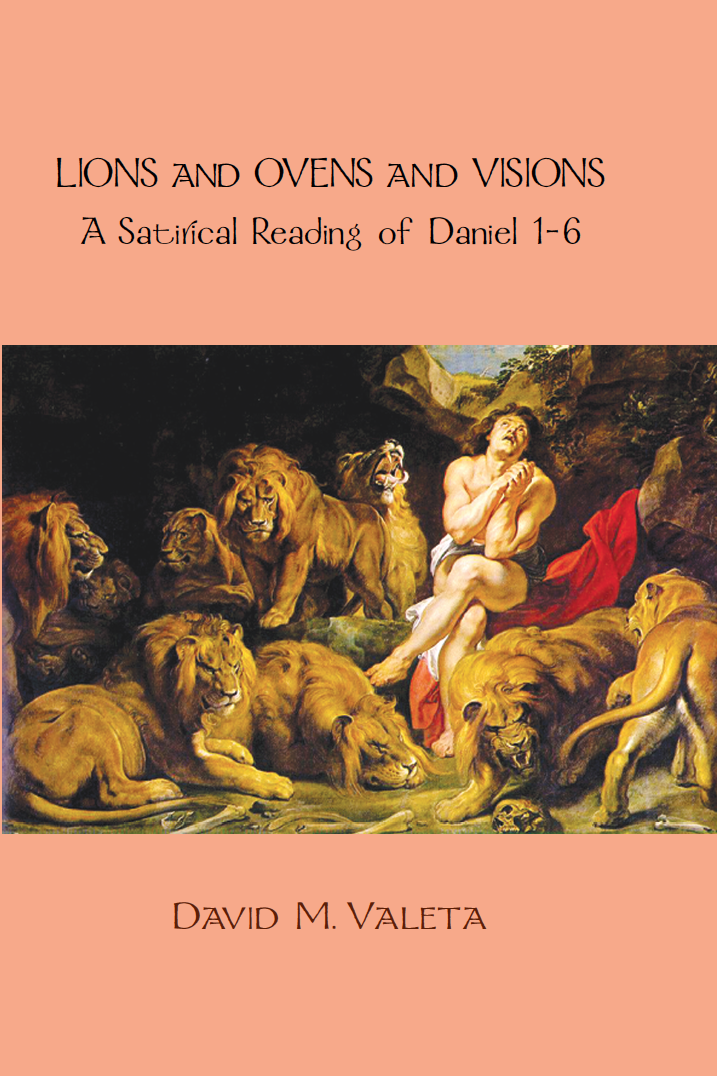

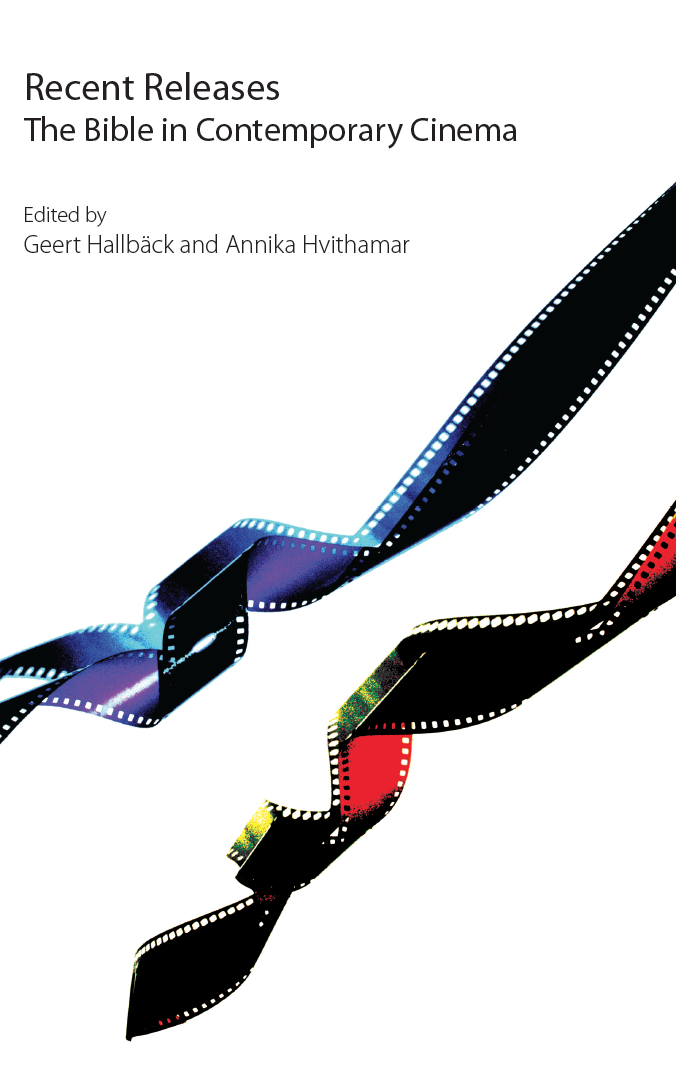
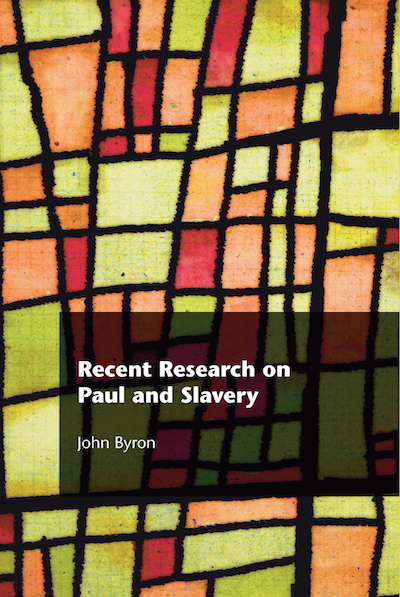
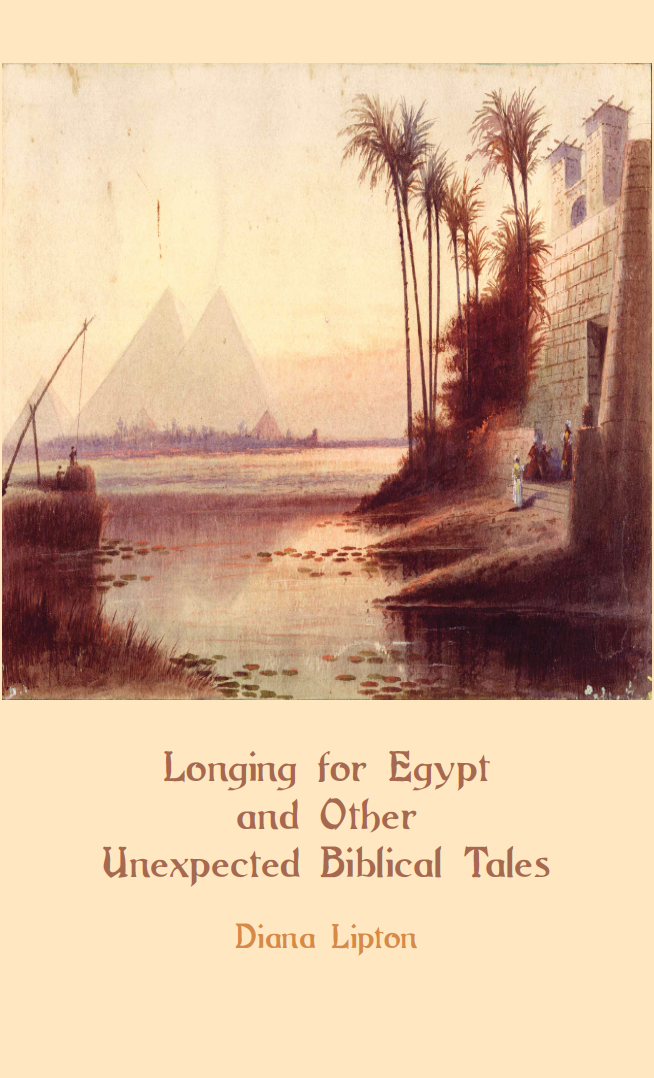

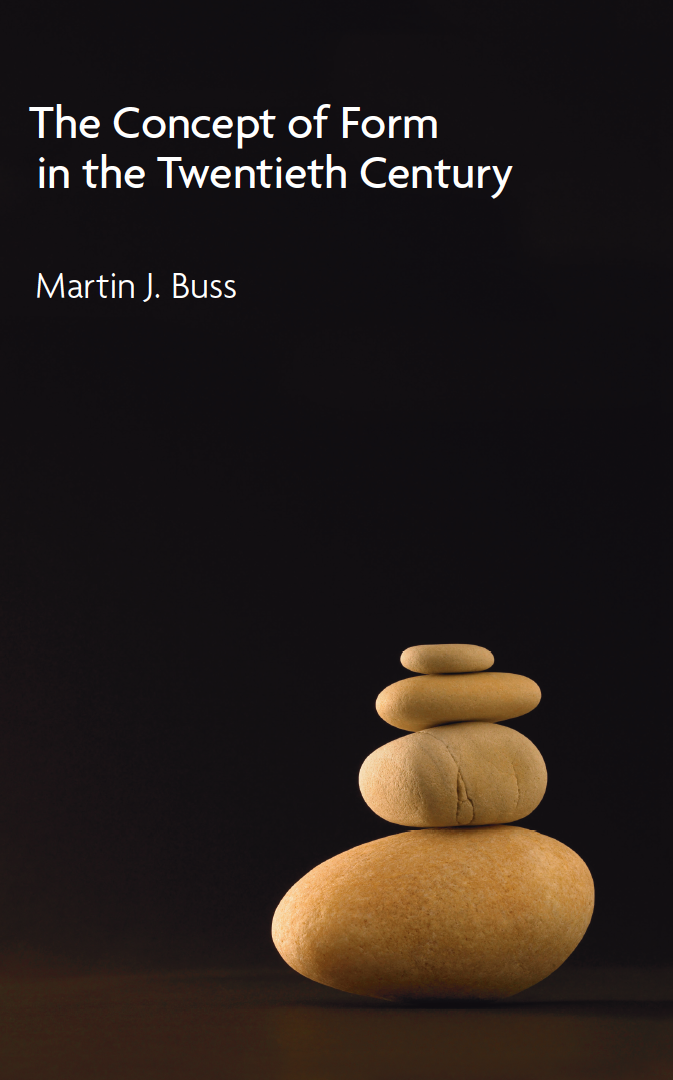
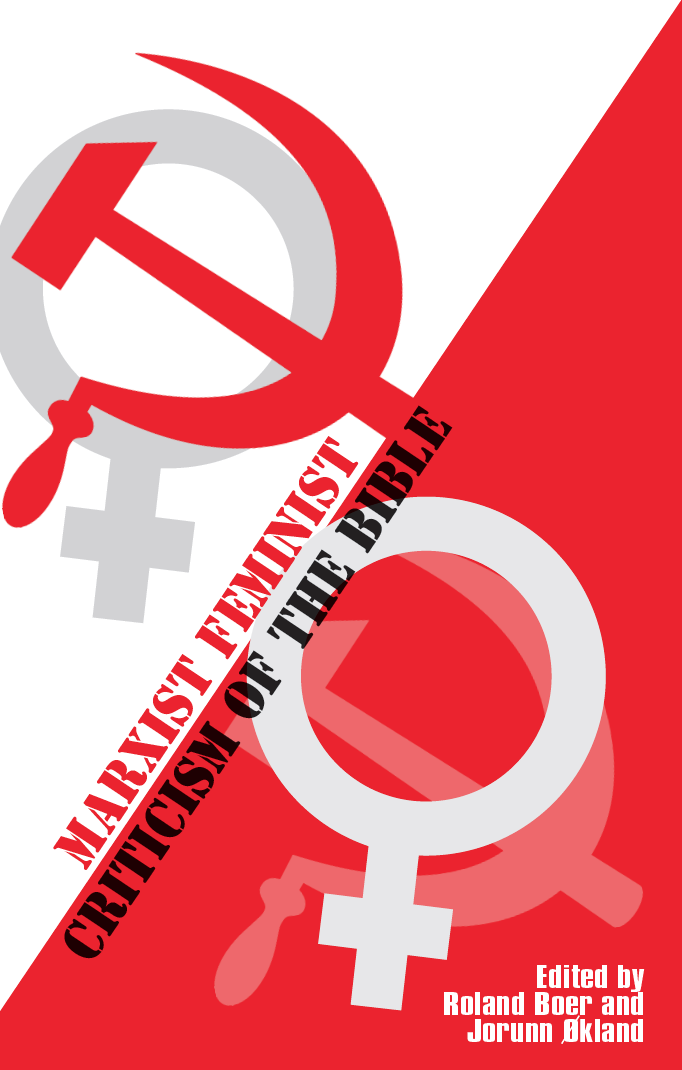

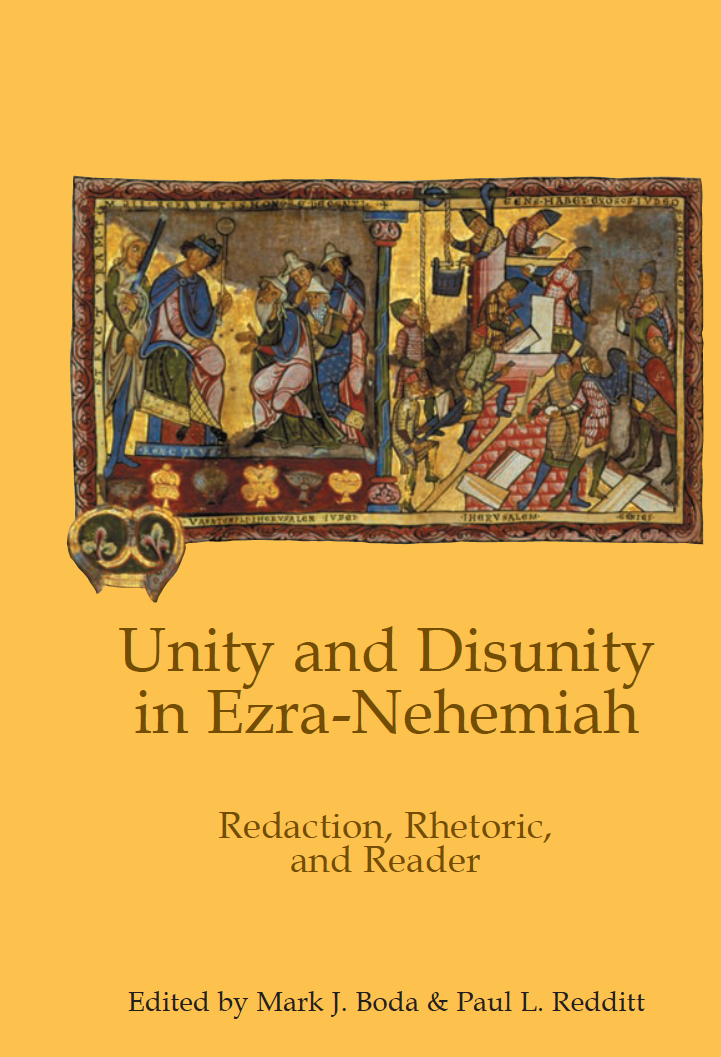
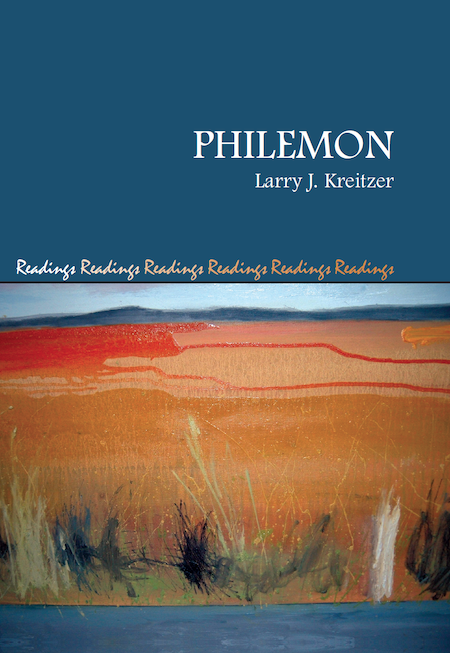
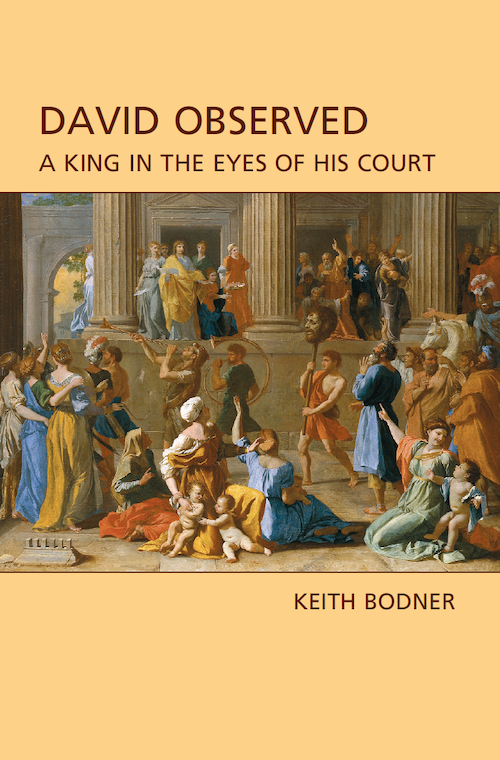
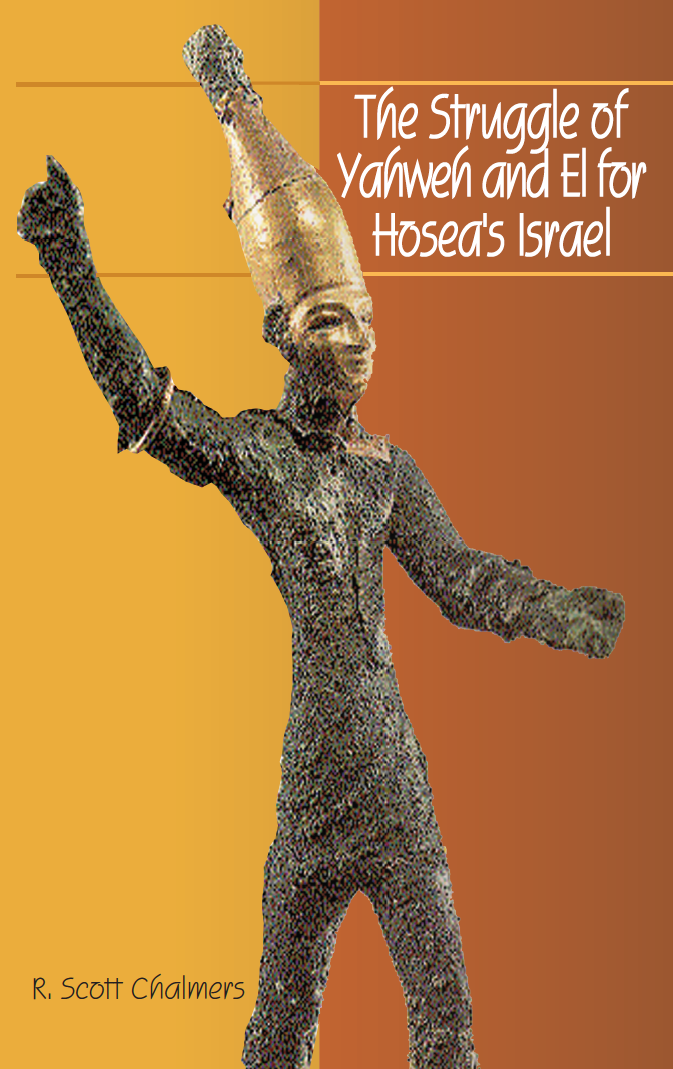

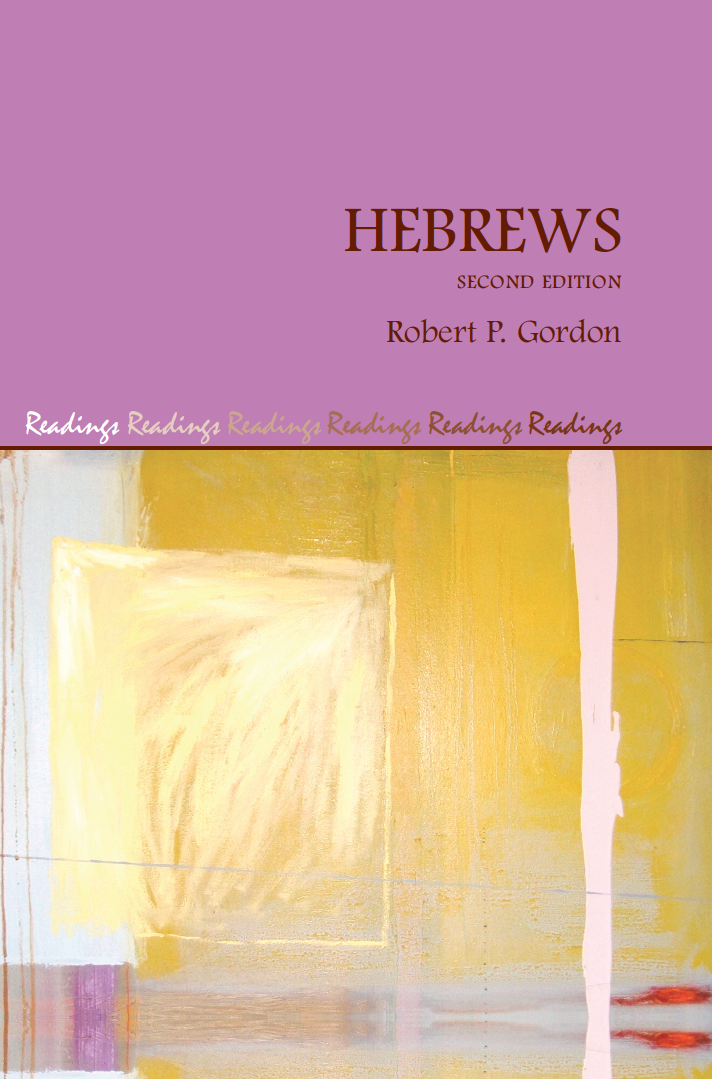
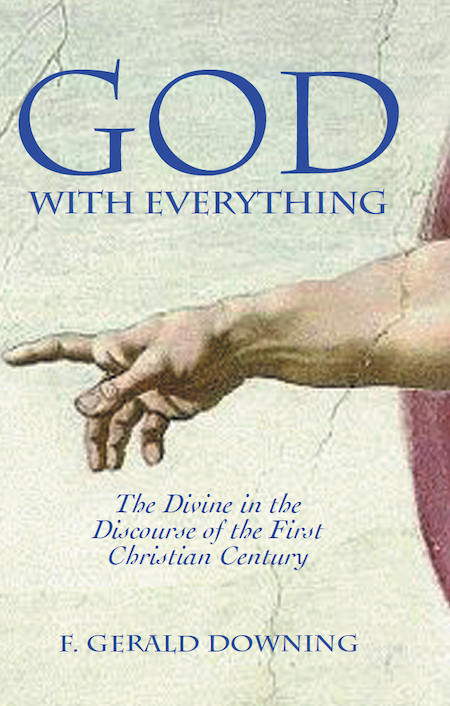
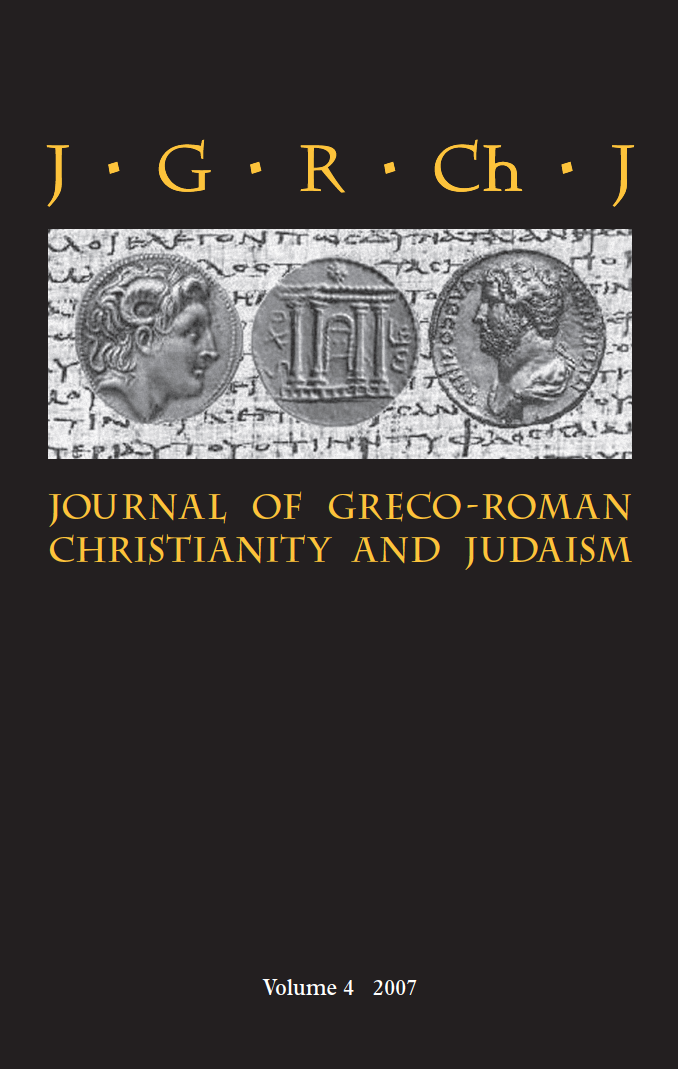
Job
Job